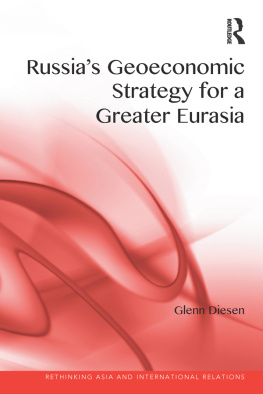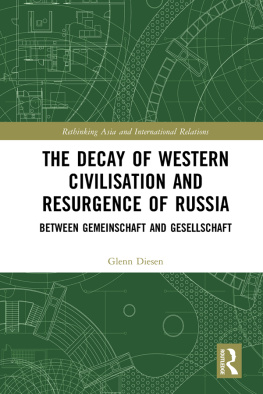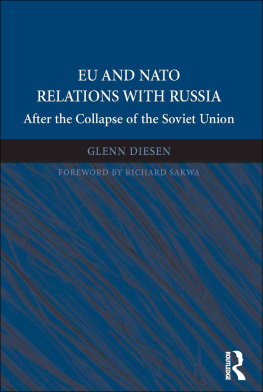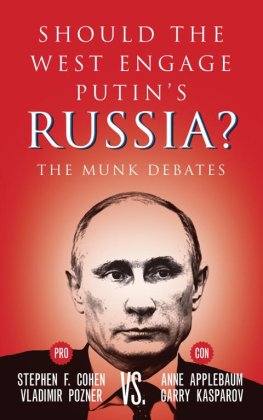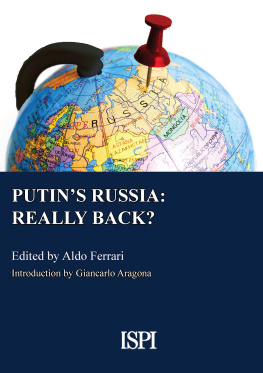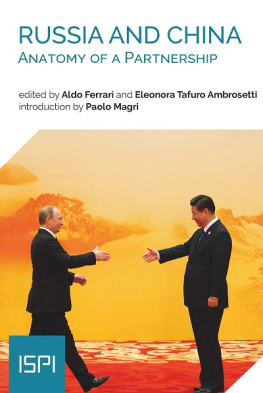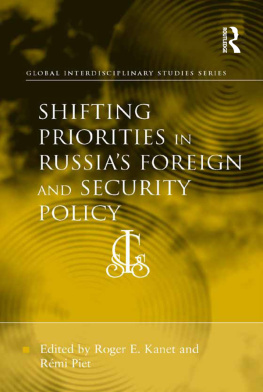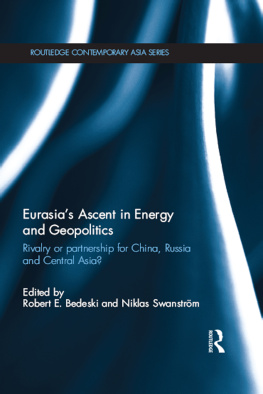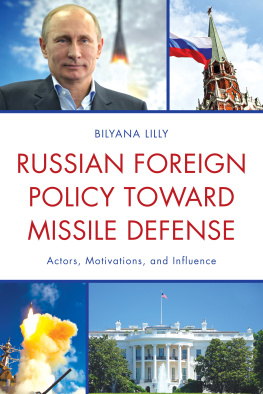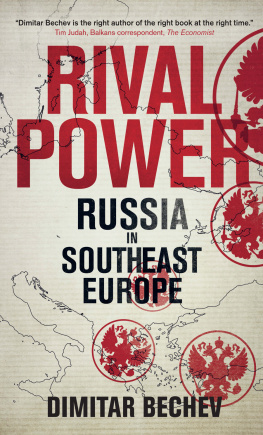Russias Geoeconomic Strategy for a Greater Eurasia
Moscow has progressively replaced geopolitics with geoeconomics as power is recognised to derive from the states ability to establish a privileged position in strategic markets and transportation corridors. The objective is to bridge the vast Eurasian continent to reposition Russia from the periphery of Europe and Asia to the centre of a new constellation. Moscows Greater Europe ambition of the previous decades produced a failed Western-centric foreign policy culminating in excessive dependence on the West. The leaning-to-one-side approach deprived Russia of the leverage required to negotiate a more favourable and inclusive Europe consistent with Gorbachevs Common European Home. Eurasian integration offers Russia the opportunity to address this over-reliance on the West by using Russias position as a Eurasian state to advance its influence in Europe.
Offering an account steeped in Russian economic statecraft and power politics, this book offers a rare glimpse into the dominant narratives of Russian strategic culture. It explains how the countrys outlook adjusts to the ongoing realignment towards Asia while engaging in a parallel assessment of Russias interactions with other significant actors. The author offers discussion both on Russian responses and adaptations to the current power transition and the ways in which the economic initiatives promoted by Moscow in its project for a Greater Eurasia reflect the entrepreneurial foreign policy strategy of the country.
Dr Glenn Diesen is an Adjunct Research Fellow at Western Sydney University and an affiliate at the National Research University Higher School of Economics in Moscow. Dr Diesen specialises in Russias approach to European and Eurasian integration, and the dynamics between the two. This includes central topics such as ideology, energy and geoeconomics. He is the author of EU and NATO Relations with Russia, Routledge 2015.
Rethinking Asia and International Relations
Series Editor Emilian Kavalski
Australian Catholic University (Sydney)
Asian actors on the global stage and the changes in the study and practice of world affairs that they provoke. It intends to offer a comprehensive parallel assessment of the full spectrum of Asian states, organisations, and regions and their impact on the dynamics of global politics.
The series seeks to encourage conversation on:
what rules, norms, and strategic cultures are likely to dominate international life in the Asian Century;
how will global problems be reframed and addressed by a rising Asia;
which institutions, actors, and states are likely to provide leadership during such shifts to the East;
whether there is something distinctly Asian about the emerging patterns of global politics.
Such comprehensive engagement not only aims to offer a critical assessment of the actual and prospective roles of Asian actors, but also seeks to rethink the concepts, practices, and frameworks of analysis of world politics.
This series invites proposals for interdisciplinary research monographs undertaking comparative studies of Asian actors and their impact on the current patterns and likely future trajectories of international relations. Furthermore, it offers a platform for pioneering explorations of the ongoing transformations in global politics as a result of Asias increasing centrality to the patterns and practices of world affairs.
Titles
Asia in International Relations
Unlearning Imperial Power Relations
Edited by Pinar Bilgin and L. H. M. Ling
Uncertainty, Threat and International Security
Implications for Southeast Asia
Zachary C. Shirkey and Ivan Savic
Theorizing Indian Foreign PolicyZachary C. Shirkey and Ivan Savic
Edited by Misha Hansel, Raphaelle Khan and Mlissa Levaillant
Russias Geoeconomic Strategy for a Greater Eurasia
Glenn Diesen

